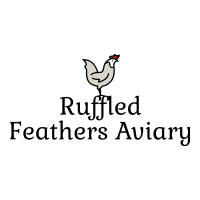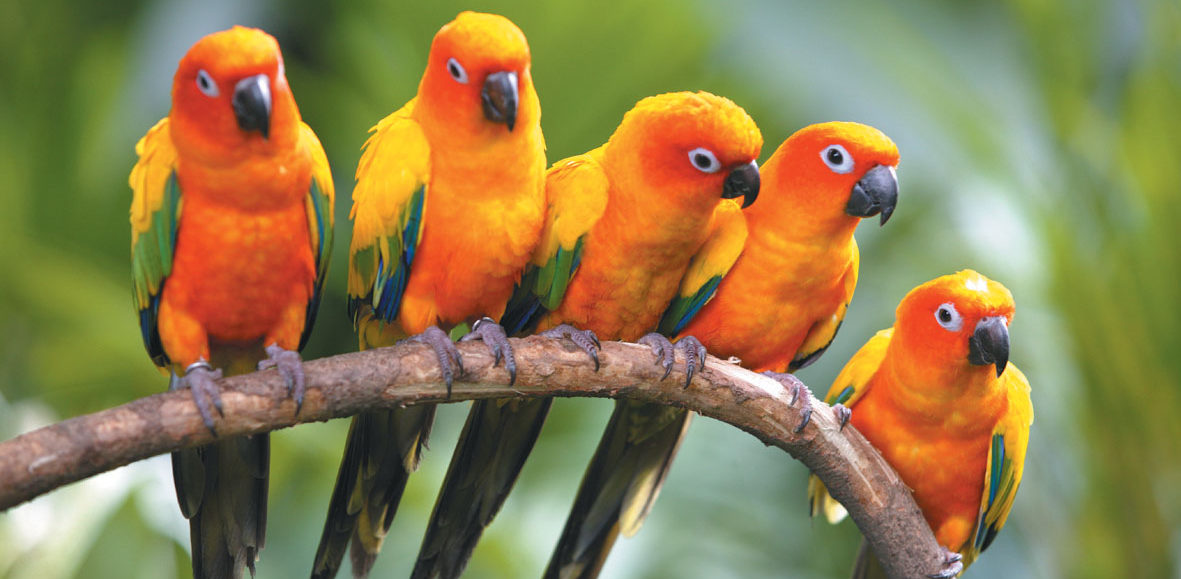
Question: Is shipping unsafe or stressful for my bird?
We have shipped dozens of birds, and so far we have never had a problem. The birds have arrived safe and sound. Most handfed babies will come out of the carrier willingly and do not seem to be stressed. If your bird does not come out willingly, please don’t worry that he is not a friendly bird, it’s just that just like humans birds all react differently.
Question: What do I do with my bird when I first bring him home?
When you first pick your bird up at the airport he may be tired from his journey. Some aren’t, they will be right at the front of the carrier looking for love and attention. If this is the case and the bird steps right out and onto your hand when you open the carrier then go ahead and spend a few minutes with him before putting him into his new cage. If he is reluctant to come out of the carrier then give him a dish of food and water and try to let him come out on his own. This builds trust as you are not making him come out of his “”safe”” place by force, you are letting him do it on his own time. You can even put the open carrier on the floor of his cage if it is big enough.
Question: When can I hold my bird after I bring him home?
When you first bring your bird home and get him into his new cage, you want to watch and make sure he is eating before you do anything else with him. We advise a big selection of food to begin with. Give him pellets, fresh foods and a good seed mix or millet to encourage him to eat. Some birds may not eat for a day or even two, others will eat right away. At first it is very important to keep his environment outside of the cage stable. Do not let large crowds, active children and other pets disturb him. Give him time to take in his new surroundings and see where he is. Be sure the food is in a place where he can find it easily.
Question: How do I first properly establish a relationship with my bird?
When you approach your bird the first time he may just happily hop up onto your hand or he may be shy and need a little time to get to know you. All birds are different, just like people. Use the ‘step up’ command every time you approach your bird. Hold your fingers together vertically with your thumb tucked down, which leaves your index finger available for the bird to perch on. If the bird is reluctant to step up then press firmly against the top of his legs where they meet his belly. This will throw him a little off balance; he will automatically step up onto your hand to regain it. If he comes forward with his beak or otherwise threatens you with it, it is crucial that you do not pull your hand back. Doing so gives control to the bird and he will very very quickly learn he can intimidate you. Even the tamest birds may test your at first. It’s just like having a two year old with an attitude and a beak! If you or the bird feel fearful or uncomfortable with this approach then you may start out much slower by talking gently to him, feeding him treats by hand and stroking him where he will allow it, even if it is only the tip of his tail or his toes through the bars.
Question: What are other things to avoid which may cause bad habits?
Playstands: Your bird may need to learn to stay on a playstand. If he flies or climbs off then immediately tell him “”No”” in firm voice, make him step up onto your hand and put him back onto the playstand. Ignore him until he is back on the stand, at which point he can have attention again. If he continues to fly off the stand they put him back in his cage until another time. Be patient, they learn!
Food: We have several rescue birds that have developed screaming problems because their new owners gave them table food every time they ate in front of the bird. This is okay to do if the food is healthy and you plan on doing it every single time he sees you eating for the rest of your life! Birds are flock animals and they like to eat together. If you train him to eat with you then he will always expect it. Once you stop or have a meal that consists of food he can’t have, you may end up with your flock buddy screaming at you for his share.
Stepping up: This command is absolutely necessary. Practice it over and over until it is rote. Do not let him come out of the cage on his own, make him step up on your hand to come out. You may also want to teach him to step up onto a perch, this is especially good for larger birds that may one day be in a cranky mood and don’t want to get onto your hand. Be sure not to pull your hand away in fear, don’t let anyone else do it either. Once you decide to make the bird step up you need to carry it through.

